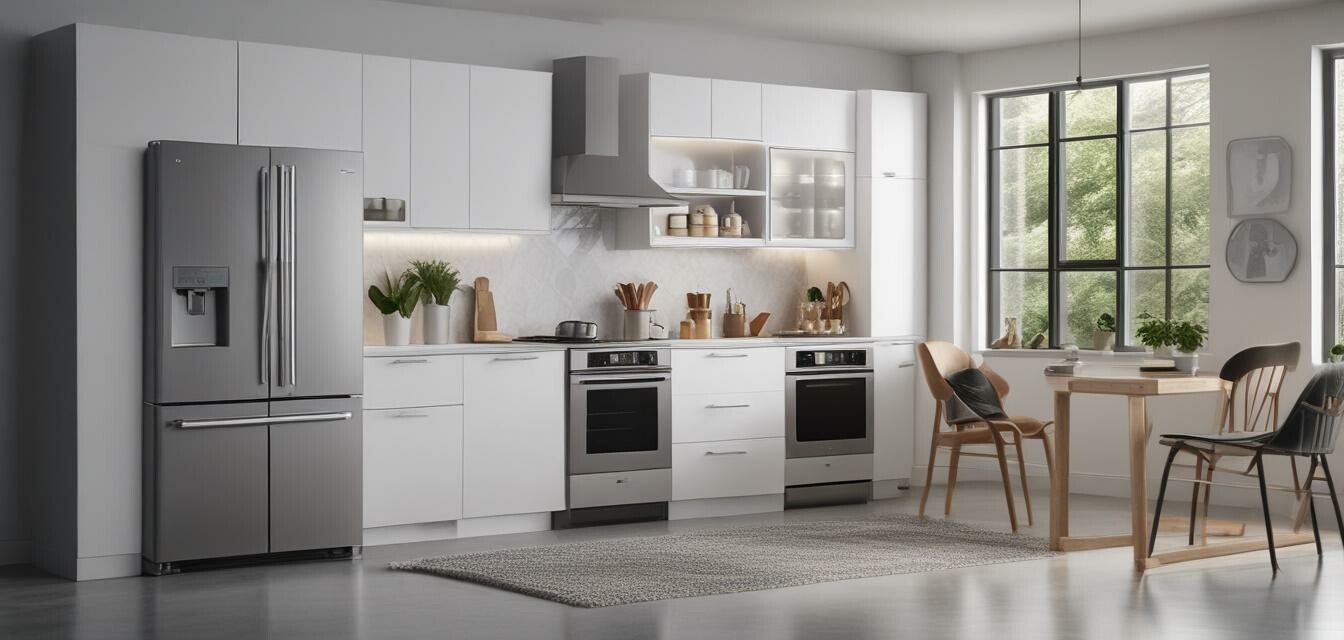
What to Look for in Energy Efficient Smart Appliances
Key Takeaways
- Look for Energy Star certification for better efficiency.
- Consider smart features that allow for remote monitoring and control.
- Check the size and capacity to ensure it meets your household needs.
- Review user-friendly interface and compatibility with smart home systems.
- Evaluate warranty and customer service options for peace of mind.
As technology evolves, so does the concept of home appliances. Energy-efficient smart appliances not only help reduce electricity bills but also offer enhanced functionality that makes daily tasks easier. When selecting such appliances, it’s essential to know what features to prioritize to ensure you’re making a wise investment.
Key features to consider
| Feature | Why it Matters |
|---|---|
| Energy Star Certification | Indicates the appliance meets strict energy efficiency guidelines set by the EPA. |
| Smart Connectivity | Allows remote access and control via smartphones or smart home systems. |
| Size and Capacity | Ensure it fits well in your space and meets your household needs. |
| User-Friendly Interface | Easy navigation enhances user experience, especially with smart tech. |
| Warranty and Support | Provides peace of mind in case of defects or issues. |
Energy efficiency ratings
When browsing energy-efficient smart appliances, one of the first indicators you should look for is the Energy Star label. This label signifies that the appliance has met stringent energy efficiency criteria, which can lead to considerable savings on energy bills over time. It's crucial for consumers to understand how much energy various appliances consume and how these efficiencies can contribute to a lower carbon footprint.
Important energy ratings
- CEER: Combined Energy Efficiency Ratio, important for air conditioners.
- IMEER: Integrated Modified Energy Factor for dishwashers.
- UEF: Uniform Energy Factor, used for water heaters.
Smart features that enhance convenience
Smart appliances provide features that extend beyond energy savings. Remote monitoring and control allow homeowners to manage their appliances on-the-go. Here are some notable smart features to look out for:
- Voice Control: Compatibility with virtual assistants like Alexa and Google Assistant.
- Alerts: Notifications for maintenance or when cycles are complete.
- Energy Monitoring: Real-time statistics to track usage and expenses.
Compatibility with smart home systems
Ensure that the appliances you choose can seamlessly integrate with your existing smart home setup. This means checking compatibility with hubs like Samsung SmartThings, Google Home, or Apple HomeKit. This integration not only enhances the functionality of the appliances but can also simplify your daily routines.
Size and capacity
Buying an appliance without considering space can lead to frustration. Measure the area where the appliance will be located, and check whether the appliance’s capacity matches your household size. For example, larger families may need washers with bigger capacities, whereas single-person households may benefit from compact designs.
| Appliance Type | Recommended Size | Household Size |
|---|---|---|
| Refrigerators | 18-25 cubic ft | 1-4 people |
| Washing Machines | 4.0-5.0 cu.ft. | 2-5 people |
| Dishwashers | 24 inches | 3-7 people |
User-friendly interfaces
When selecting smart appliances, consider how intuitive the controls and displays are. A complicated interface can bring unnecessary frustration, especially during busy times. A user-friendly appliance allows you to focus on efficiency and versatility rather than struggling with settings.
Warranty and customer service
Finally, always check the warranty policy and the availability of customer service support. An efficient appliance can still require occasional repairs, and having a good warranty gives homeowners peace of mind. Look for brands known for their reliable customer service, as this can make a big difference in your experience.
Pros
- Reduced utility costs through energy savings
- Convenient remote access and monitoring
- Modern technology with enhanced functionality
- Environmentally friendly options available
Cons
- Potentially higher upfront costs
- Ask for reliable internet connection for proper functioning
- Some users find smart features unnecessary
Final thoughts
Choosing the right energy-efficient smart appliances requires careful consideration of numerous features. From assessing energy ratings to understanding smart functionalities, each aspect contributes to how well these appliances can serve your household while minimizing costs and environmental impact. For more insights on optimizing appliance use and to explore various appliance options, check out our other articles on Tips and How-to Articles.
